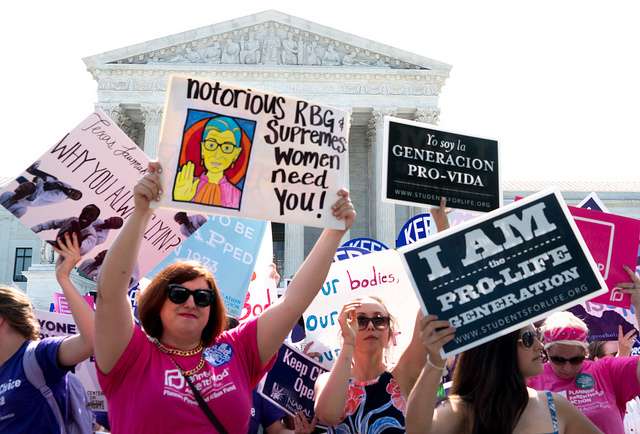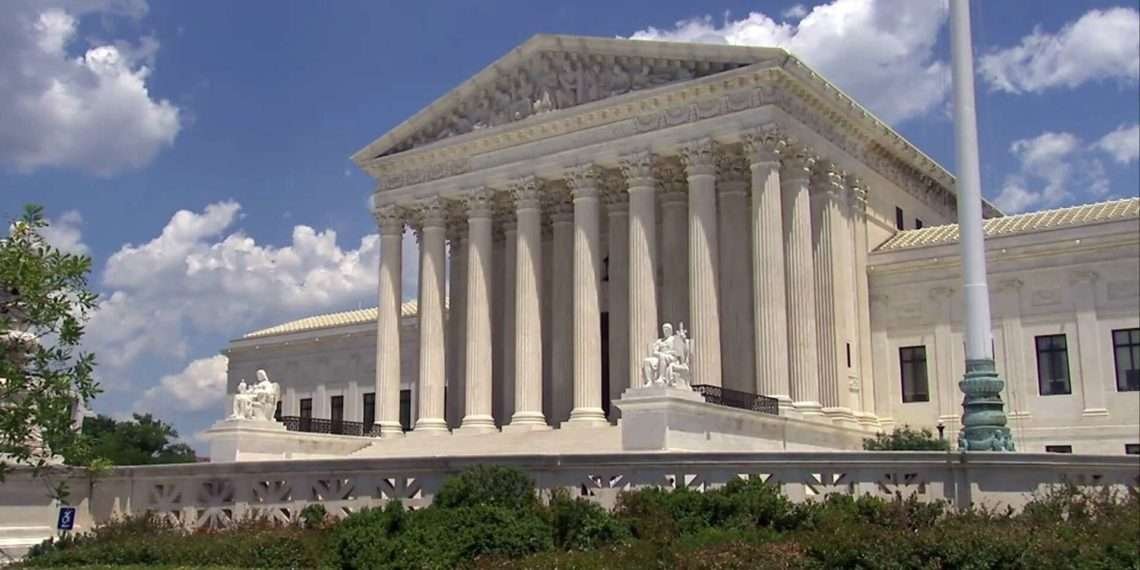A law, effective Wednesday, September 1, 2021, has been passed by the Supreme Court in Texas to reaffirm the banning of most abortions that are six weeks old.
Notwithstanding the 1973 Supreme Court decision that establishes a constitutional right to the procedure, it also makes Texas one of the most restrictive in the nation regarding access to abortion services.
Although other states passed similar laws, the measures rather faced legal challenges due to how they were written as it may be difficult to challenge in court, representing a sea change in the battle over abortion rights and inviting mock by other jurisdictions seeking to cram down access to abortion.

According to Elizabeth Nash, state policy analyst for the Guttmacher Institute, a research organization that supports abortion rights said; “These laws are unconstitutional, as we have understood Supreme Court rulings until now, and courts have quickly issued preliminary injunctions blocking enforcement.”
She further added that “This is the first one that has gone into effect. This is huge in that respect.”
As part of efforts to further give insight, the following answers have been provided to common questions about the new legislation.
Is the law a complete ban on abortions?
The law bars abortions once cardiac activity can be detected in the embryo. This simply means that when a heart is detected in preparation for the pregnancy termination, it’s expected to occur around the sixth week of pregnancy.
The disadvantage of this is the inability to recognize pregnancy as it is early stages, and many women do not know they are pregnant at that point. By the time a pregnant woman misses her period, she is four weeks pregnant, as doctors usually define it.
Under the Texas law, then, a woman would have about two weeks to recognize her condition, confirm the pregnancy with a test, make a decision about how to manage the pregnancy and obtain an abortion.
Medical experts say that many women may not track their periods carefully, may have irregular cycles, or may not know the exact date of the start of their last period.

“It is extremely possible and very common for people to get to the six-week mark and not know they are pregnant,” said Dr. Jennifer Villavicencio, lead for equity transformation at the American College of Obstetricians and Gynecologists.
The cardiac activity detected on ultrasound is not a true heartbeat, Dr. Villavicencio added. It results from the electrical activity, but the valves of the heart have not yet formed. And the sound does not indicate the pregnancy is viable, she said.
“Forcing them to find out about a pregnancy and make a decision about how to manage it in a short period of time is antithetical to ethical care.”
Dr. Villavicencio
What about pregnancies as a result of rape or incest, or to protect the life of the mother?
The law does not make exceptions for rape or incest. It does permit abortions for health reasons. Again, Ms. Nash noted that the exceptions are narrowly drawn, allowing a termination only if the pregnancy could endanger the mother’s life or lead to “substantial and irreversible impairment of a major bodily function. These are very narrow exceptions.”
The language does not cover every instance in which a woman’s health might be at risk. Nonetheless, she added, “Health providers will be very conservative about interpreting the law because they don’t want to cross a line.”

Who will be most affected by the Texas law?
According to the Guttmacher Institute, there are seven million women of childbearing age in Texas, making the law more difficult for all of them to obtain abortions in the state as legislators have now ordered.
But according to abortion providers, the measure will create nearly impossible obstacles for certain vulnerable populations. These groups capture teenagers, who often don’t realize they are pregnant until later in pregnancy; low-income people, who need to find about $550 to cover the cost of the procedure; and people of colour, including undocumented immigrants.
The institute further says that about 70 per cent of abortions in Texas in 2019 were provided to women of colour, according to the Guttmacher Institute.
However, Rosann Mariappuram, executive director of Jane’s Due Process in Austin, Texas has noted that minors in Texas will need to obtain permission from a parent or guardian to gain access to abortion care. Some minors must go to court to do so, adding to the delays.
The Executive Director of the Texas Equal Access Fund, Kamyon Conner, an organization that helps low-income women pay for abortions, said she was particularly concerned about the new law’s potential impact on Black women in Texas, who already face high maternal mortality rates.
Additionally, undocumented women cannot travel easily around the state to get access to care, she added, and women with chronic illnesses can find a pregnancy life-threatening.
Read Also: Ghana’s economy in a difficult state- IFS





















